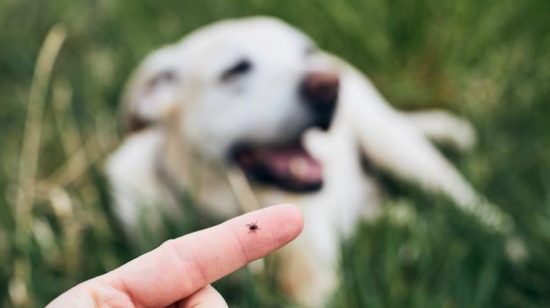Urinary Tract Infections in Dogs

If you have ever had a urinary tract infection yourself, you can certainly vouch for how uncomfortable and painful they can be. It is much the same if your dog has one. However, if your dog is showing symptoms of a UTI, it is always best to get a diagnosis from your veterinarian. This is because some of the same symptoms experienced from a urinary tract infection are also present when a dog has a more serious condition such as bladder cancer or kidney disease.
Urinary Tract Infections in Dogs
Symptoms of UTI in Dogs
Your dog may have a UTI if they experience:
- Cloudy urine or blood in the urine
- Whimpering or straining while they pee
- Having accidents inside of the home
- Licking the genitals frequently
- Bad-smelling urine
- Inactivity
How UTIs Occur?
A dog gets a urinary tract infection when bacteria gets in through the urethral opening, where they pee. This bacterium typically originates from feces, or some type of debris that gets where it shouldn’t be. Most of the time, E. coli is the bacterium that is to blame.
It should also be noted that some dogs are predisposed to UTIs. This includes older female dogs, dogs who have sugar diabetes, and dogs who are diagnosed as having bladder stones.
Are UTIs Preventable?
Although giving your dog plenty of water will not cure a UTI, doing so can minimize the possibility of them contracting one in the first place. Be certain that your canine always has access to an abundance of clean, fresh water. Be sure to change their water when you see food or other objects floating inside of it.
It is also helpful if you let your dog out to relieve themselves as often as possible. Don’t make them hold it for hours at a time. Having a dog door would be helpful in this situation. This practice will also hinder accidents from occurring inside of your house too.
Another thing you can do to prevent UTIs is to give your dog probiotic supplements, which boost the growth of healthy bacteria.
How Are They Treated?
Your veterinarian will examine your dog’s urine under a microscope, to look for bacteria, protein and crystals. After the cause has been determined, in most cases the dog will be given antibiotics for 7 to 10 days to heal the infection. It is very important that the dog finishes every dose of the antibiotics. In addition to this, it is highly important that the dog’s water intake increases significantly. After the dog is given the course of antibiotics, it is very important that the urinalysis is performed again, to confirm that the infection is resolved.
What If They Are Frequent?
If UTI symptoms keep showing up, over and over, this could be the sign of something more serious, canine bladder cancer. In some cases, this diagnosis is made only when round after round of antibiotics are given to the dog with no healing happening.
If you suspect that your dog has a urinary tract infection, it is important to get it taken care of, right away. This is because if they are left untreated, this can lead to stones in the kidney or bladder, prostate gland inflammation, poisoning of their blood, problems with fertility, infection in their kidneys and even kidney failure.





